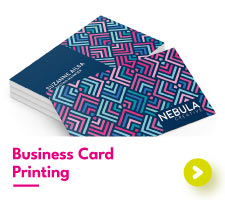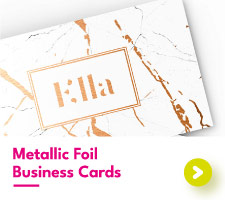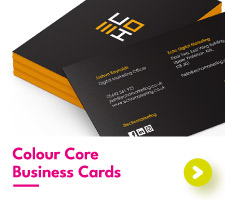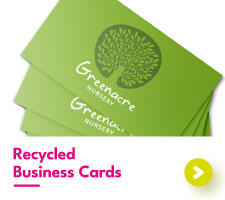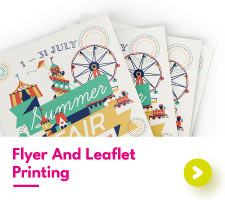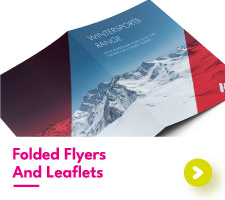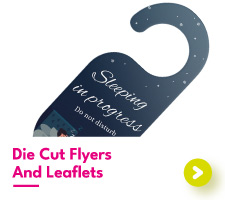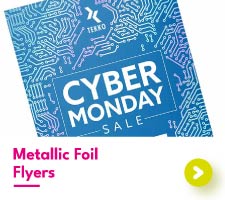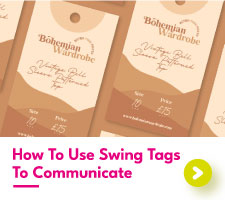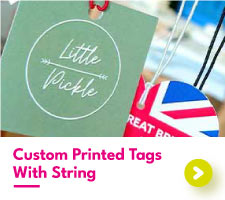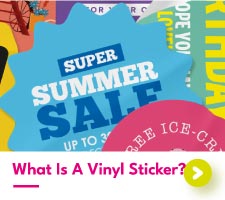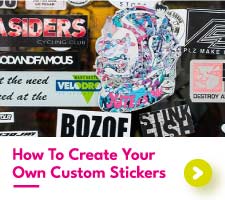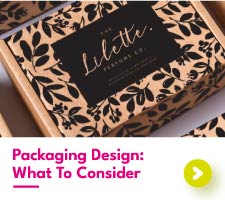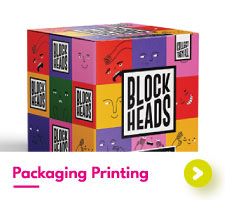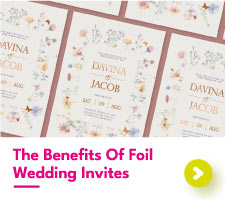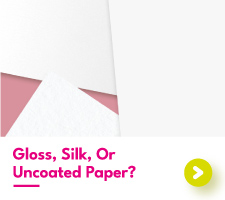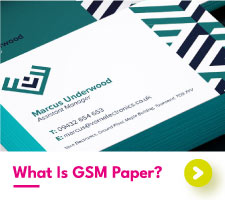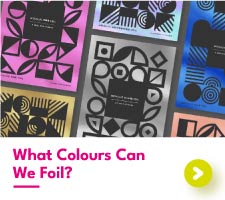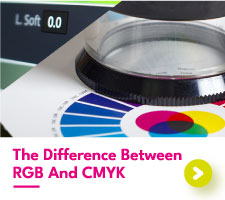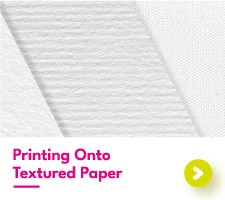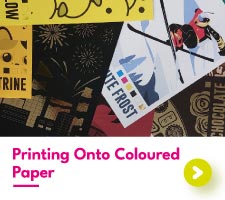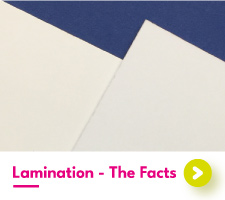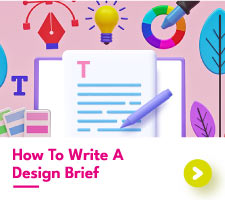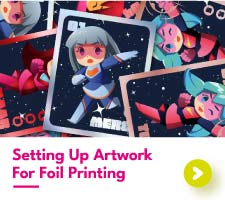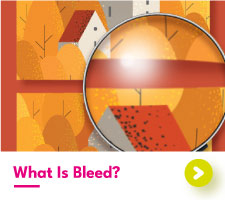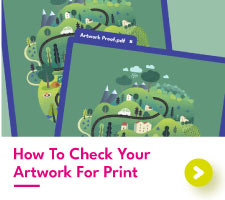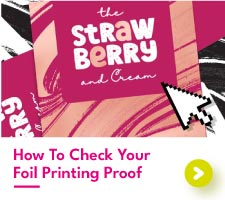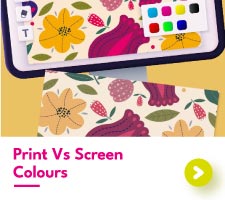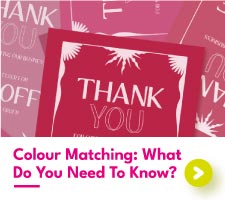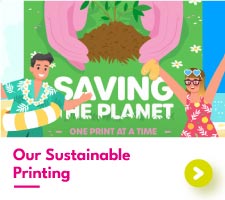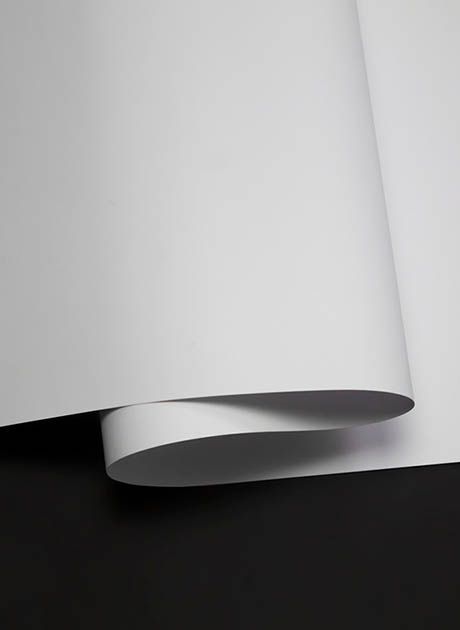Gloss, Silk or Uncoated Paper?
Gloss, Silk, Or Uncoated: Getting To Know All Our Paper Types
At Aura Print, we host an incredible 61 types of paper for printing, with our paper library expanding almost constantly. From classic white papers to the more eco-friendly, every single type of paper you can possibly think of rests inside our paper toolbelt. With such a choice available for you to pick from, knowing which paper type to choose for your prints isn’t always easy.
Instead of making a blind guess from our printing papers, we thought we’d make your life easier by providing a complete rundown of all our spectacular papers. Yes, all of them.
Whether you want to know which paper is best for perforated leaflet and flyer printing or need a hand choosing between our textured papers for premium art prints, this is the post for you. Keep reading to find your perfect paper match.
The Classics: Uncoated Vs Silk Vs Gloss Paper
This first group of paper for printing is known by many printers as The Classics. Why? All three form the solid foundation for any good print studio. Many of you who have clicked on this post in the hopes of being guided on how to choose paper for printing are going to find the answer within this trio. Let’s look at what makes each one unique.
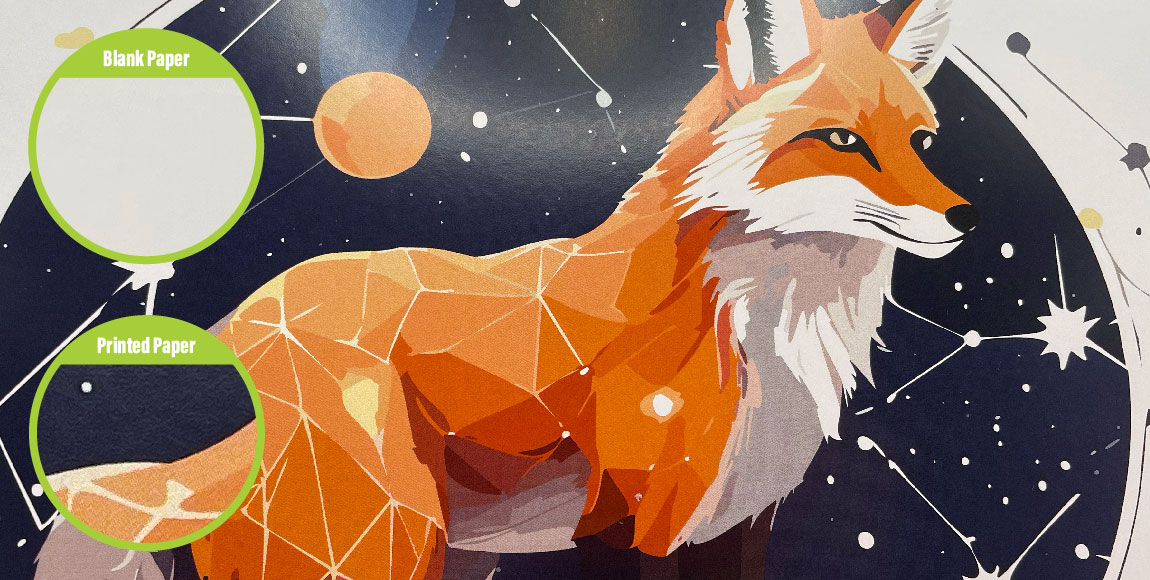

Silk Paper
Silk is arguably the top dog of the printing world. With a warm white, smooth matte finish, silk paper can handle full-coverage printing (such as photography and dark backgrounds) like no other.
This paper type is coated and has no texture at all, which helps the coloured toners of your designs pop from the page. If you are ever unsure as to which paper stock to pick, silk is always a solid choice.
Our top recommendation for printing on silk paper is more design-focused. If your artwork features beautiful photographs or creative digital drawings, choose silk paper to get the best printed colour results.
Silk Paper Properties
Texture: None
Colour: CMYK or Black
Lamination: Yes
Duplexed: Yes
Foiling: Yes
Overprinting: No
Paper Weights Available
130gsm, 150gsm, 170gsm, 200gsm, 250gsm, 300gsm, 350gsm, 400gsm, 700gsm
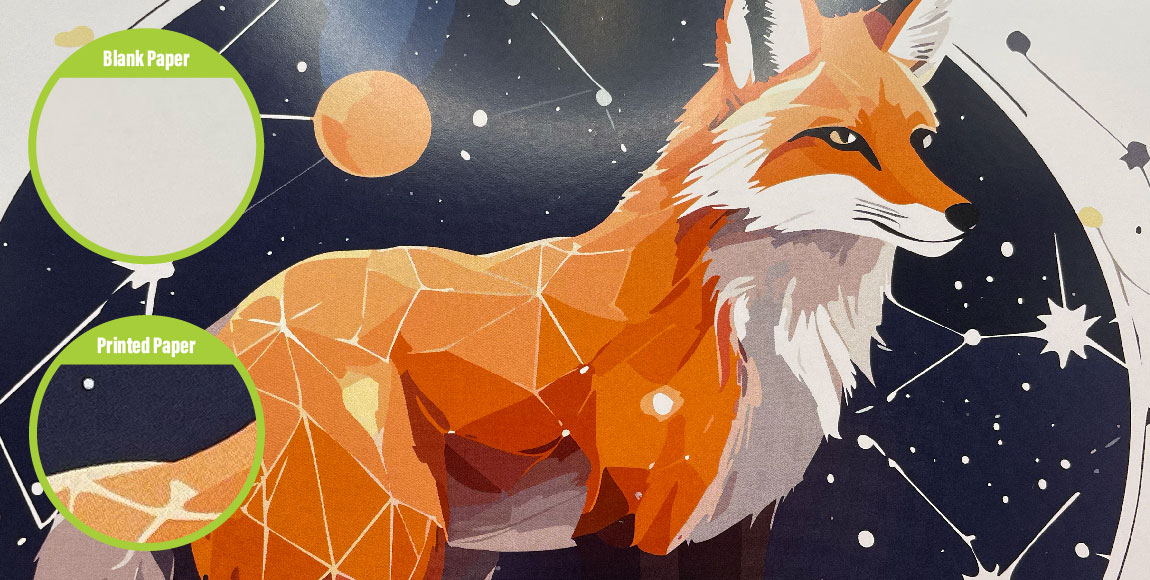

Gloss Paper
Much like silk paper, gloss paper is also coated with no visible texture. What separates gloss paper from silk is the finish of the paper’s surface. Gloss paper (as the name suggests) has a glossy finish to it, whereas silk paper is matte. This subtle gloss still shows even when printed over, giving your prints a little shine.
Out of the classic trio, gloss paper is the only one not available as a double-thick stock. Ever tried to glue anything with a slippery surface? We can tell you it’s neither fun nor easy to accomplish. Want to print on thick paper? Then you better look elsewhere!
We recommend choosing gloss paper for mass flyer and brochure printing – anything that will benefit from some glossy shimmer.
Heavy coverage printing, including photographs and art pieces, are also a well-loved favourite of gloss paper.
Gloss Paper Properties
Texture: None
Colour: CMYK or Black
Lamination: Yes
Duplexed: No
Foiling: Yes
Overprinting: No
Paper Weights Available
130gsm, 150gsm, 170gsm, 200gsm, 250gsm, 300gsm, 350gsm
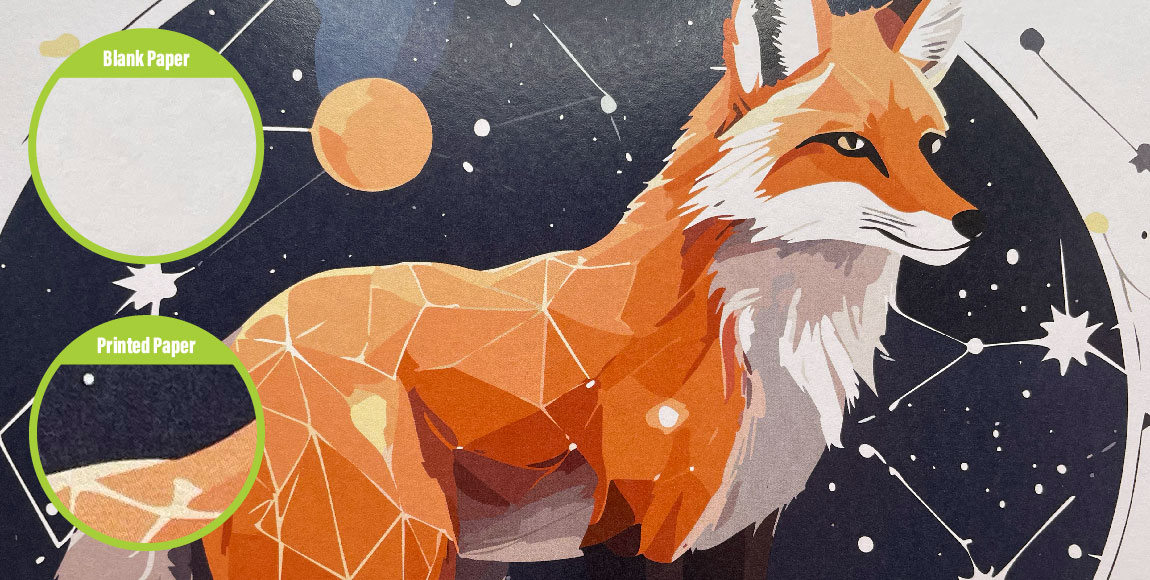

Uncoated Paper
Completing our trio of The Classics is uncoated paper. Uncoated paper isn’t really anything like silk or gloss other than also being white.
We’ve included it here in The Classics as uncoated paper is the second-most popular paper for printing (after silk of course).
Uncoated paper has a natural texture running along its pure white surface. This texture is only ever so slight and can hardly be seen once printed over.
What’s great about uncoated paper, other than providing that lovely “raw” paper feel, is that it can be overprinted. Want to print your letterheads and other business stationery at home? Then uncoated is the paper for you.
There are so many uses for uncoated paper that it’s hard to give a recommendation. But, if you want to know what is the best paper to print certificates, then uncoated is a strong contender. The paper can be overprinted and written on with ease. This is great if you’re looking for a quick way to add the names of your winners to your certificates.
Uncoated Paper Properties
Texture: None
Colour: CMYK or Black
Lamination: Yes
Duplexed: No
Foiling: Yes
Overprinting: No
Paper Weights Available
100gsm, 120gsm, 160gsm, 200gsm, 250gsm, 300gsm, 350gsm, 400gsm, 700gsm
The Eco-Friendly Collection
Looking for types of paper for printing that are also great for the environment? Then this next group of quality printing papers are exactly what you need. At Aura Print, we currently offer 6 unique eco papers that are all made from recycled and sustainable materials. All our papers can be recycled, but this selection in particular is the “greenest” of the bunch.


Recycled Uncoated Paper
Recycled uncoated paper is the eco-friendly version of our classic uncoated paper. Both have pretty much exactly the same qualities: matte finish, natural touch, and pure white colour. There is, however, one major difference between the two. The texture.
Understandably, as recycled paper is made from recycled paper stocks, getting that perfect, unblemished finish is impossible, or at least very time-consuming.
Instead, you’ll find that recycled uncoated paper has little speckles dotted about the fibres. This speckled look adds more charm than anything, with each sheet having a completely unique appearance.
Recycled uncoated is also the only eco-friendly paper that can also be foiled. To learn more about how we keep our foiling environmentally friendly, check out our blog on foiling responsibly.
Our top pick for using recycled uncoated paper is greeting cards. Whether you want to print birthday cards or want to promote your eco-friendly status at the farmers market, recycled uncoated is the right choice.
Recycled Paper Properties
Texture: Natural Speckled
Colour: CMYK or Black
Lamination: Yes
Duplexed: Yes
Foiling: Yes
Overprinting: Yes
Paper Weights Available
100gsm, 120gsm, 160gsm, 200gsm, 250gsm, 300gsm, 350gsm, 700gsm


Kraft Paper
Kraft paper isn’t just made from recycled materials. The surface of this paper type is unbleached, meaning it keeps the natural brown colour from the tree it was made from. Being unbleached and made from recycled materials leads to the colour of kraft differing from batch to batch.
Want all your prints to look the same? We recommend ordering everything together in bulk to reduce these colour differences.
Printing onto kraft paper produces a dramatically different result compared to the other printing papers we have covered so far. Coloured toner applied over the top of a brown surface is altered by the brown underneath.
What this results in is a much darker print than what is seen on screen. Lighter colours will be the most affected, looking more brown than their original colour, so we advise sticking with a dark colour palette.
It's also worth noting here that we cannot print white. All white areas on your design will show the brown of the kraft paper. If you want white within your design, then we suggest choosing one of our different paper types.
Kraft Paper Properties
Texture: Natural Brown
Colour: CMYK or Black
Lamination: No
Duplexed: Yes
Foiling: No
Overprinting: No
Paper Weights Available
280gsm and 540gsm


Cotton Paper
Cotton paper is the first paper on this list that isn’t actually made from, well, paper. As the name suggests, cotton paper is made from sustainably sourced cotton. Like the rest of our papers, cotton paper is recyclable and biodegradable.
Being made from cotton gives this paper a unique feel to the touch. Run your hand along cotton paper and you’ll be able to feel the minor fuzziness of the surface.
This fuzziness leaves a natural texture across the cotton paper. Most of the time, this texture poses no threat to your designs, although we do recommend minimising heavy coverage printing whenever possible.
As cotton is made using a fabric, any colour printed on top will appear more muted. If colour is important to your business branding, then we recommend picking recycled uncoated (for an eco-friendly option) or silk paper.
Cotton Paper Properties
Texture: Slight Fuzziness, Hammered
Colour: CMYK or Black
Lamination: No
Duplexed: Yes
Foiling: No
Overprinting: No
Paper Weights Available
300gsm and 600gsm
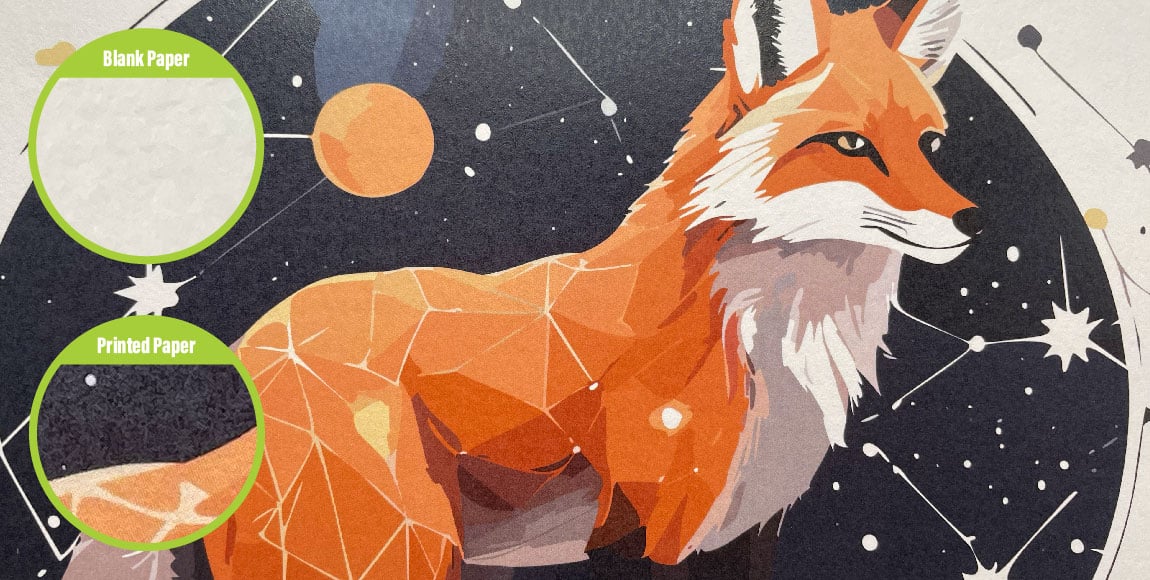

Rag Paper
Rag paper is also made from cotton, this time using the waste offcuts from garment factories. Due to being made from leftover cotton, rag paper has an overall fuzzier and less uniform appearance compared to cotton paper.
A great thing about rag paper is that the natural texture is still visible through the print without distracting from the overall design.
The cloud-like hammered effect on the paper's surface provides a quirky quality that will get your greeting card and invitation customers talking.
Speaking of invitations, if you want to know what paper to print invitations on, why not give rag a shot? Whether you’re printing for your own wedding or for your golden anniversary, rag paper is a great way to be eco-friendly and textured without being too overwhelming.
Rag Paper Properties
Texture: Fuzzy Hammered
Colour: CMYK or Black
Lamination: No
Duplexed: Yes
Foiling: No
Overprinting: Yes
Paper Weights Available
120gsm, 300gsm and 600gsm


Wheat Paper
Wheat paper is made from – you guessed it – wheat! 50% of this paper type is made from wheat straw cellulose, leaving this paper with a warm cream colour and straw-like feel.
The surface of wheat paper is not only ribbed with embossed lines, but it also contains real wheat speckles throughout.
Having a combination of a cream colour, ribbed texture, and wheat particles means that any colour printed onto wheat will appear differently from what is seen on the screen.
Think about what happens when you add yellow to any colour, it will appear more yellow. Well, that’s exactly what happens when you print onto wheat paper. This change in colour isn’t the most noticeable thing in the world, but if colour is important to you, then steer clear of the wheat.
If you are happy with a bit of colour difference, then wheat paper is our recommendation for what paper to print wedding invitations onto. This paper lends itself to designs with negative space, so if that sounds like your wedding invites, we’ve got the paper for you!
Wheat Paper Properties
Texture: Ribbed
Colour: CMYK or Black
Lamination: No
Duplexed: Yes
Foiling: No
Overprinting: Yes
Paper Weights Available
120gsm, 300gsm and 600gsm


Cannabis Paper
The final environmentally friendly paper in this lineup is cannabis. Yes, paper can be made from sustainably sourced cannabis! And yes, it is legal.
Cannabis paper is very similar to the wheat paper, just without the added wheat particles. The paper is an oyster colour, with ribbed lines running along the surface. Each sheet of cannabis contains speckles of EU grown cannabis, randomly placed across the page.
These speckles of cannabis are very small, serving more as a fun detail to your designs instead of an obstacle to try and avoid. Colours printed onto cannabis also change, but nowhere near as much as the wheat or kraft papers above.
If you’re looking for a great conversation starter around your print products, then cannabis paper is the way to go.
Cannabis Paper Properties
Texture: Ribbed and Speckled
Colour: CMYK or Black
Lamination: No
Duplexed: Yes
Foiling: No
Overprinting: No
Paper Weights Available
300gsm and 600gsm
A Colourful Bunch
Not all papers are white in colour. In fact, paper can be found in almost any colour that you could possibly think of! What’s special about coloured paper is that the edges of the paper are also your chosen colour instead of white.


GF Smith Colorplan
Our G.F. Smith Colorplan paper is currently available in 22 different shades. From sunny yellow to deep amethyst and a host of colours in between, printing on coloured paper is a real art form.
As there are so many individual colours in G.F. Smith, we’re going to break this section down into four chunks.
Natural Colours
Our “natural” coloured Colorplan papers are made up of just two shades: White Frost and Natural. These two colours are the closest to those you may find on other standard paper types. The White Frost is a brilliant, eye-catching cold white, whereas the Natural is more of an off-white or light beige.
Want cream paper for your wedding invites without the added texture? Then go with natural Colorplan.
GF Smith Colorplan Paper Properties
Texture: Natural
Colour: CMYK or Black
Lamination: Yes
Duplexed: Yes
Foiling: Yes
Overprinting: No
Paper Weights Available
270gsm and 540gsm
Lighter Colours
Lighter shades of Colorplan can be printed with CMYK-coloured toners.
As these papers are still very light, their colours don’t make too much of an impact on the final prints.
You should, however, keep your chosen colour paper in mind when creating your designs.
A yellow paper will make your prints look more yellow, and a purple paper will make your prints appear more blue.
This group of papers features; Real Grey, Azure Blue, Lavender, Candy Pink, Sorbet Yellow, and Stone.
Medium Colours
This group of Colorplan shades are halfway between light and dark. Being slightly darker means that we do not recommend full-colour printed designs, the colour of the paper alters the colour of the print too much.
Instead, we advise sticking with black print only for the best results.
You’ll be surprised at how striking a design you can create only using black toner.
Within the medium colour group is: Factory Yellow, Citrine, Bright Red, Scarlet, Fuchsia Pink, Purple, Tabriz Blue, and Marrs Green.
Darker Colours
The last section of Colorplan is the dark colours. These papers are much darker, with even black print not showing on their surface. So what should you print onto this group of papers?
Foil of course! Our darkest Colorplan papers truly make foil printing pop, making them ideal for foil printing business cards with colourful edges. To see our different foil colours (as well as all our Colorplan papers) head on over to our foil sample pack.
Our darkest papers include: Sapphire, Amethyst, Bitter Chocolate, Forest, Dark Grey, and Ebony.


Colour Core
Our colour core paper is the thickest and heaviest paper that we offer at Aura Print. At a whopping 800gsm, if you’re looking for thick paper for printing, you’ve found it here!
Colour core is made up of three layers. The first and last layers are actually made using a white paper sticker that is then stuck on either side of the colourful middle layer. This sandwiched layer in the centre is made using one of our G.F. Smith Colorplan papers and can be customised to be the colour of your choice.
As the front and back of colour core is white, there’s no restriction to your colourful creations. The edges of this card shows all three layers together, with the centre colour layer being the most striking of the lot. Being so thick does come with limitations in the form of laminate. All our thick paper for printing must be laminated to help protect the edges of the paper.
Want a great recommendation for colour core? Business cards are your No.1 man! What better way to one-up your competitors and show off an air of luxury than with triple thick business cards with a coloured banded edge?
Colour Core Paper Properties
Texture: Smooth
Colour: CMYK or Black
Lamination: Yes
Duplexed: Yes
Foiling: Yes
Overprinting: No
Paper Weights Available
800gsm


Pearlescent Paper
Bringing our colourful paper range to a close is the Pearlescent paper. This type of printing paper isn’t necessarily “colourful” but fits into this group due to another special quality. The shimmering finish.
Pearlescent paper is a bright white paper containing a smooth, subtle glitter across its surface. When caught in the light, the shimmer coming from this paper is truly magical. Outside the light, the shimmer does not distract from the print, think of it as a little surprise for your customers.
Printing on top of pearlescent paper does tend to reduce the effects of the shimmer so we recommend keeping print coverage to a minimum.
In our printed examples, we did find that the glitter still showed in lighter areas of colour but could not be seen at all in the black square. We also found that pearlescent is hard to photograph so to see this magnificent paper type in person, get in touch to request a sample.
Pearlescent Paper Properties
Texture: Subtle Glitter
Colour: CMYK or Black
Lamination: Yes
Duplexed: Yes
Foiling: No
Overprinting: Yes
Paper Weights Available
120gsm, 290gsm and 580gsm
The Textured Lot
Wanting quality printing paper with unique and distinctive textures? Then this next set of paper stocks are going to be right up your street. Think the types of paper we’ve already covered have texture? They’re nothing compared to the papers within this group!


Zeta Hammer
Starting off with the strongest paper texture we offer – the Zeta Hammer. This paper type has a deep, cloud-like texture hammered across the surface. Run your hands along this paper type and there’s no doubting you’ll be able to feel each individual contour. Other than being heavily textured, Zeta Hammer is also an off-white uncoated paper with a matte finish.
With Zeta Hammer, we recommend caution. Which is strange to say when talking about paper. But caution is advised here for a reason as this kind of paper will alter the appearance of your prints. Deep textures like this one cause the printed toner to settle unevenly, leaving the end print looking mottled and patchy. Just look at the black square design for a great example of this happening.
So, what’s the solution here? We strongly advise minimal designs with little print coverage if you’re thinking of choosing the Zeta Hammer. Whether that’s with a simple invite, clothing tag, or business card, minimalistic is always better.
Zeta Hammer Paper Properties
Texture: Strong Cloud
Colour: CMYK or Black
Lamination: No
Duplexed: Yes
Foiling: No
Overprinting: Yes
Paper Weights Available
100gsm, 300gsm and 600gsm


Zeta Laid
Zeta Laid is a step down from the Hammer but still packs plenty of texture. This time, the texture has a lined appearance with a slightly raised finish. These lines are “rough around the edges”. The thickness and location can differ throughout the sheet. If you would prefer to have a more uniform appearance, check out our Arpa paper below.
The effects of Zeta Laid are much less obvious compared to its sister Hammer. Coloured toners printed on top appear less patchy, with the toner settling neatly into the deeper points of the lines. Although the toner does settle, the end look is nowhere near as uneven as Hammer so doesn’t take too much away from the design.
Zeta Laid is one of the great paper choices for printed tags. The natural lined texture adds a rougher vibe to the prints without it being way too much.
Zeta Laid Paper Properties
Texture: Uneven Ribbing
Colour: CMYK or Black
Lamination: No
Duplexed: Yes
Foiling: No
Overprinting: Yes
Paper Weights Available
100gsm, 300gsm and 600gsm


Zeta Linen
Zeta Linen is the final paper type from the Zeta family and it sure does live up to its name. With a crosshatched texture across the surface, this paper type is the closest we have to a fabric canvas material.
Much like the other two Zeta papers, Zeta Linen does have a texture that changes the appearance of the final print.
But, unlike Hammer and Laid, Zeta Linen has a much more subtle texture. Instead of consequential differences in print, there’s only a small amount of toner that sits inside the thin lines of the Linen.
If you want to know what paper to print art on, Zeta Linen is a creative choice. The Linen texture is a paper doppelganger to canvas and feels just the same too. What better way to distribute mini versions of your hard-worked oil paintings and watercolours?
Zeta Linen Paper Properties
Texture: Crosshatching
Colour: CMYK or Black
Lamination: No
Duplexed: Yes
Foiling: No
Overprinting: Yes
Paper Weights Available
100gsm, 300gsm and 600gsm


Arpa Ribbed
Arpa Ribbed is another of our strongest paper textures. With clearly defined and evenly spaced lines, Arpa stands out from the rest of the textured paper stocks.
Want to change the direction of the ribbed lines? Make sure to request the orientation from our team when placing your order!
As with each of our textured papers, Arpa is no different in that the texture of the paper changes the print. In the case of Arpa, printed toner looks darker within the dips of the ribbing.
But, as the texture of Arpa is so consistent, this difference in colour tone is also consistent across the sheets of paper.
Going big and bold is the best artwork option for Arpa. Delicate designs, with small areas of text, will be swallowed up into the ribbing of the paper.
Each rib of Arpa is a showstopping 1mm wide, so make sure your designs can handle something so large and in charge!
Arpa Ribbed Paper Properties
Texture: Strong Lines
Colour: CMYK or Black
Lamination: No
Duplexed: Yes
Foiling: No
Overprinting: No
Paper Weights Available
350gsm and 600gsm


Tintoretto Gesso
Tintoretto Gesso is the toned-down version of Zeta Hammer. Both paper stocks have the same cloud-like hammered texture but one is a lot stronger than the other. If you’re looking for a luxurious feel, then Tintoretto Gesso is our number one pick.
Fun fact, Fedrigoni Tintoretto Gesso has the longest name of all our paper stocks, and it also sounds the fanciest! If you’re looking for a paper to brag about to your friends, then this sure is the one for you.
In all seriousness, Tintoretto Gesso is a wonderful choice for premium printing, with the texture hardly altering the printed image.
Tintoretto Gesso Paper Properties
Texture: Cloud
Colour: CMYK or Black
Lamination: No
Duplexed: Yes
Foiling: No
Overprinting: Yes
Paper Weights Available
140gsm, 350gsm and 600gsm


Waterproof Printing With Never Tear
Being waterproof is essential if you’re planning on getting your prints wet. Of course, no-one really plans on getting their prints wet, but juice spills and bad weather are always looming overhead. For waterproof printing, there is really only one choice – Nevertear.
Nevertear is a plastic material with a cold white, smooth finish. This print material isn’t just waterproof, it’s also stain and tear-resistant.
These qualities aren’t found on any of our other paper types, (even with a laminate applied to them), making Nevertear the true king of individuality.
We recommend using Nevertear for your menu printing, especially if your restaurant caters towards children or provides food that is messier to eat (looking at you Italian pasta specialists!). Nevertear menus can be easily wiped down after use, saving you money on printing new menus all the time.
Never Tear Paper Properties
Texture: Smooth
Colour: CMYK or Black
Lamination: No
Duplexed: Yes
Foiling: No
Overprinting: No
Paper Weights Available
120gsm, 155gsm, 195gsm, 258gsm, 368gsm and 510gsm
Poster Papers: Yes There's More Than One!
Want to know what paper to print posters on? Fortunately for you, there is more than one choice, so you don't have to be stuck with standard poster paper if that's not what you're looking for.


170gsm Poster Paper
170gsm is the print standard for posters. Being a lower GSM means this paper is lightweight, which is handy if you’re looking to hang it up on your wall.
Poster paper undergoes a different printing process than all our other paper types. Our smaller printers can only print up to A3 in size and so cannot handle the larger prints commonly found for posters.
Fortunately, we have a large format printer that is designed just for posters as well as banners and wallpaper.
As posters tend to be larger and are printed using a separate machine, the resolution of the print is also lower. Now, this won’t affect your artwork if you’re thinking of going large. But if you want to print smaller elements beware of potential fuzziness around the printed edges.
170gsm Poster Paper Properties
Texture: Smooth
Colour: CMYK or Black
Lamination: Yes
Duplexed: No
Foiling: No
Overprinting: No
Paper Weights Available
None


Backlit Posters
Backlit poster material may look subdued here but appearances can sometimes be deceptive. Once fitted into a light box, these posters come to life with vibrant lights.
Backlit posters are made using a semi-translucent plastic material that allows light to shine through from behind.
The light illuminates the printed toner, creating a spectacular show. This poster paper only really works if you have a lightbox display. Without it, the colours appear dull and washed out which isn’t very attractive for your cinema or theatre.
The same notes on resolution as 170gsm Posters apply to Backlits. Anything scaled up will be fine but keep an eye on those smaller elements as they will appear blurred.
Backlit Posters Properties
Texture: Semi-Transparent
Colour: CMYK or Black
Lamination: No
Duplexed: No
Foiling: No
Overprinting: No
Paper Weights Available
220 Micron


Packaging Extraordinaire With Invercote Creato
Invercote is a strong, speciality material mainly used for packaging. What’s great about this paper is that it can be easily cut and creased to form a variety of shapes. This is pretty helpful if you want to create some funky packaging designs.
The surface of the paper itself is smooth, with practically no texture at all. Having a smooth surface gives this paper type its edge as colours printed over the top truly pop from the paper.
Out of all the paper tests we did when creating this post, the colours on Invercote were truly unmatched.
We recommend using this paper type for packaging boxes and playing card tuck boxes.
Invercote Creato Paper Properties
Texture: Smooth
Colour: CMYK or Black
Lamination: Yes
Duplexed: No
Foiling: Yes
Overprinting: No
Paper Weights Available
None
Choosing The Right Paper Isn't Easy
We know that choosing the right paper for printing isn't easy. With such an amazing selection of paper stocks to pick from, it doesn't take long to get lost in all the options available to you. Let our team guide you towards the right choice. Whether you would like to view a sample of our papers before placing an order or would like an expert opinion, we're always here to provide you with some much needed assistance.

 USA
USA FR
FR
